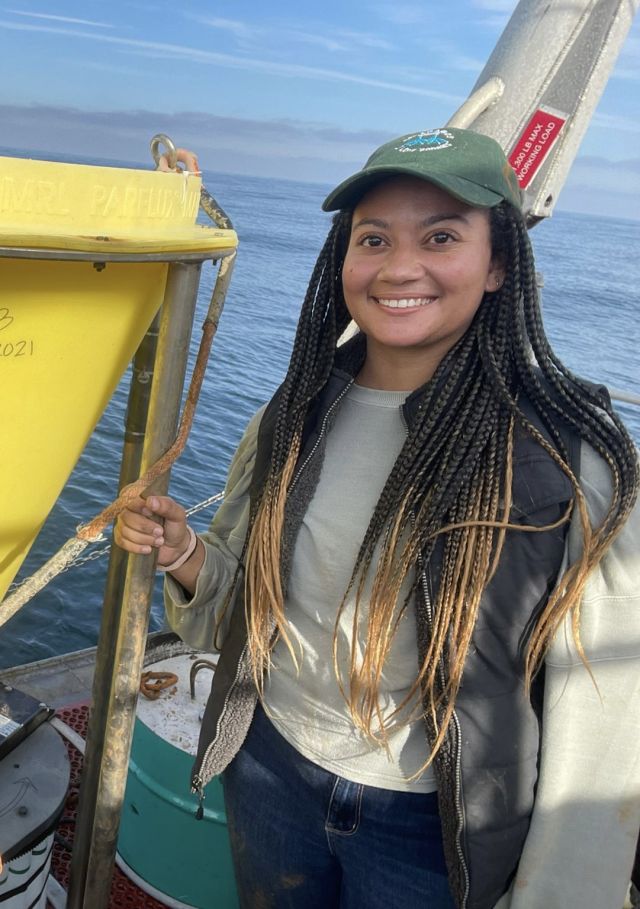
About Nicola
I’m a 4th year PhD student in the IGPMS program working with Dr. Alyson Santoro. I’m originally from Raleigh, North Carolina so being on the west coast makes me miss Southern food a lot. I received my B.S. in Marine Science and Biology from University of Miami in Miami, Florida. I have a cuddly, playful, and extremely food-motivated cat called Ned who is a major pillar of my support system here in Santa Barbara. During my free time I enjoy pottery, embroidering, and recently I have been learning how to sew new clothes and repurpose old ones.
Research
My research investigates how marine microbes attached to sinking particulate organic matter (e.g. plankton poop) affect the storage of carbon in the ocean. Due to their high concentrations of organic matter and nutrients, sinking particles are hotspots for microbial respiration, where organic carbon is consumed and carbon dioxide is released into the surrounding water. The rates and depths at which this respiration occurs can determine how much carbon gets stored in the deep ocean. Therefore, it is important to understand which factors affect respiration rates and to what extent. My research combines in situ rate measurements with molecular techniques to help determine the relationships among particle-attached microbial communities, environmental factors affecting those communities, and their respiration rates.
How and why did you get into your area of research
As an undergraduate at University of Miami, the climate science courses I took taught me how the cycling of chemical elements in the ocean could have global impacts. Through my position as a research assistant in a chemical oceanography lab, I learned how marine microbes play a major role in those elemental cycles—the particulate carbon cycle more specifically. Learning that something so small could have such a substantial effect piqued my curiosity and led me to apply to graduate school. When applying to PhD programs, I knew I wanted to combine my interest in these large-scale elemental cycles with my interests in chemistry and marine biology which led me to the research I’m conducting in the Santoro Lab here at UCSB.
What do you find rewarding about your research
I think the most rewarding part of my research has been learning such a wide range of new skills, like deploying sediment traps and constructing equipment for fieldwork, that I didn’t know I was capable of when I started my PhD. There is so much we will probably never know about the ocean but being able to provide data and information about even this one aspect of it feels rewarding to me.